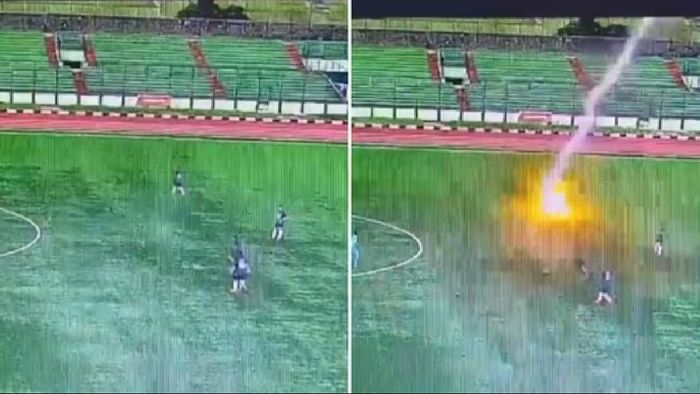Indonesian football player dies after being struck by lightning on field
Reports emerging from the scene indicate that the player was isolated on the field when the bolt of lightning struck. A video captured from the stands depicts the moment as the player falls victim to the powerful force of nature.

- Feb 13, 2024,
- Updated Feb 13, 2024, 11:02 AM IST
A 35-year-old Indonesian football player lost his life after being struck by lightning during a friendly match between 2 FLO FC Bandung and FBI Subang. The distressing incident occurred on Monday, February 12, sending shockwaves through the football community in Indonesia.
Reports emerging from the scene indicate that the player was isolated on the field when the bolt of lightning struck. A video captured from the stands depicts the moment as the player falls victim to the powerful force of nature.
This tragic incident marks the second occurrence of a football player being struck by lightning in Indonesia within the past year. Just last year, a young footballer in Bojonegoro, East Java, suffered a similar fate during the Soeratin U-13 Cup, succumbing to injuries sustained during the incident.
The recent string of lightning-related accidents has sparked conversations regarding safety protocols during outdoor sporting events, particularly in adverse weather conditions. While the match reportedly commenced under clear skies, the sudden turn in weather highlights the unpredictability of nature and the potential dangers it poses to athletes.
In light of these incidents, attention has been drawn to the role of referees in assessing weather conditions during matches. Refereeing guidelines typically grant referees the authority to interpret and respond to poor weather conditions. Notably, in the Netherlands, football matches were recently suspended due to high wind speeds, with concerns raised over the safety of players and supporters.
The Royal Netherlands Football Association stated the paramount importance of prioritizing safety in such situations, underlining the need for collaboration among clubs, authorities, and relevant stakeholders to mitigate risks associated with adverse weather.